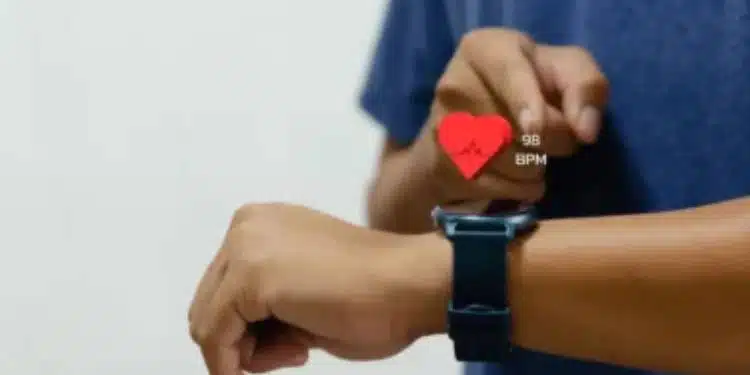by David Smith, President, and CRO at Ilumivu
I’m trying to age in reverse. Unlike my grandparents, who became more rigid as they aged, I’m much more flexible in my approach to life than I was as a younger person – even if I’m not more flexible physically. As I age, my musical taste is more varied, my belief system more willing to accept, and my approach to health more focused.
Wearable Technology for Seniors/Smart Watches
The issue is that, like many other folks our age, there’s not a clear path to taking control of our health. The standard advice to exercise more and eat less – or at least better – is great in theory, but my busy work schedule leaves little time for me to focus on these things. Plus, I’m relatively healthy, and the men in my family generally lived long lives.
As a result, for a long time, I believed I had little reason for concern. In fact, until 2 years ago, I didn’t own a smartwatch, nor did I think there was any substantive value to them. But when I got COVID in December of 2020, the security I always relied upon in my health and family’s medical history took a hit. I started to experience new complications and needed reassurance of my well-being, particularly something to help me gauge my health in any moment. And this is when my perspective on smartwatches shifted.
When my doctor suggested I use a smartwatch to control my health, I initially responded with a raised brow. But soon, I discovered that smartwatches are more than just a youthful fad or a trendy step counter. Rather, this technology just might be the way forward for older adults to navigate their own health.
Consistent Health Monitoring Outside the Doctor’s Office
While a regular annual exam with your doctor is important, what about the other 364 days of the year? The days between doctor visits is where I found my smartwatch to provide the most significant relief.
Ideally, we’d all have personal doctors on standby who actively learn our habits, evaluate our health risks, and provide us with regular health plans to keep us at our best. But, of course, that’s simply not possible. However, smartwatch technology does a shockingly profound job of patching that gap.
Here’s the gist: Smartwatches are continuously taking in real-time data. They then take that raw data, quickly transforming it into meaningful insights that can guide users towards more desirable health outcomes. Depending on the app to which the watch is connected, it can also use that same data to alert us of a potential health issue as soon as one is detected.
Better yet, with certain apps, you can also share your data with your doctor as needed. This puts not only you, but also your physician at a considerable advantage as they then get a much broader view into your day-to-day health than they ever could have in years past.
Access to this technology is important for everyone. But it’s especially helpful for those of us at the age where health scares come more readily. I personally now use my smartwatch to track my minute-to-minute heart rate, blood oxygen levels, sleep quality, hydration (and, yes, my step count). I check all of these throughout the day for greater peace of mind.
Get Manageable and Personalized Lifestyle Suggestions
Technology has advanced to the point that it no longer simply doles out standard health advice without context. Smartwatches are, well, much smarter now. They use your data to get to know you, so to speak, and then offer relevant and personalized suggestions based on what they’ve learned.
For example, upon initial use, I learned from my smartwatch that my sleep was disturbed most nights. This is not an uncommon issue for folks our age. With my hectic schedule and no further guidance, a broad goal like, “Get more physical activity,”, which is known to improve sleep quality, felt unattainable.
Instead, I found my smartwatch suggests more targeted and bite-sized recommendations. Things like hourly prompts to stand up and move when I’m sitting at my desk. Reminders to park further away from building entrances. And suggestions to take the stairs over the elevator.
Suddenly, with minimal effort, I found myself hitting my step count target, which I discovered I was nowhere close to weeks prior. Moreover, after a few short months, my smartwatch also showed my resting heart rate had consequently decreased, improving my overall sleep quality.
Plenty of older adults are sedentary, whether still at work or retired. A wearable device helps you track exactly how much or little you move, and give recommendations to improve activity goals and overall health.

The Power of Predictive Health Technology
It’s only logical that the best way to stay healthy is to not become ill in the first place. This wasn’t the mindset with which most of us were raised, myself included. But it does make the role smartwatches can play in the health of older folks even more potent.
There are now many predictive health tech companies who use the data gathered by smartwatches to determine if a user is headed down an unfavorable path.
For instance, a smartwatch app might tell you that you’re at a heightened risk for developing certain conditions, spot unusual heart rate activity, or even predict the onset of a migraine. All this information gives us the ability to proactively seek out medical care that can keep us on the road to health.
While this technology can’t make a diagnosis on its own, it gives users a trajectory of their health. It also gives them the ability to share that data with their doctor so that informed decisions can be made for better health outcomes.
Smartwatches Can Help You Stay Independent Longer
Today, smartwatch technology exists to help give you greater autonomy over your health. With easy access to your own health information, you can more readily make empowered choices. And you’ll have personalized guidance to help you do so.
There are even certain apps that include remote monitoring options. This makes it easy for loved ones to keep an eye on health data, even from a distance. In this way, remote monitoring increases the ability to live an independent life.
Of course, there’s no replacement for your trusted health professionals, but this technology is a great mitigating solution. Better still, I find my smartwatch intuitive to use, with ample personalization options to track what matters to me, making it a great option for everyone. No matter what your age.
About the Author

David Smith, President, and CRO at ilumivu, the company that provides healthcare decision support applications using the psychology of behavior change, combined with real-time data from smartphones and wearables.










